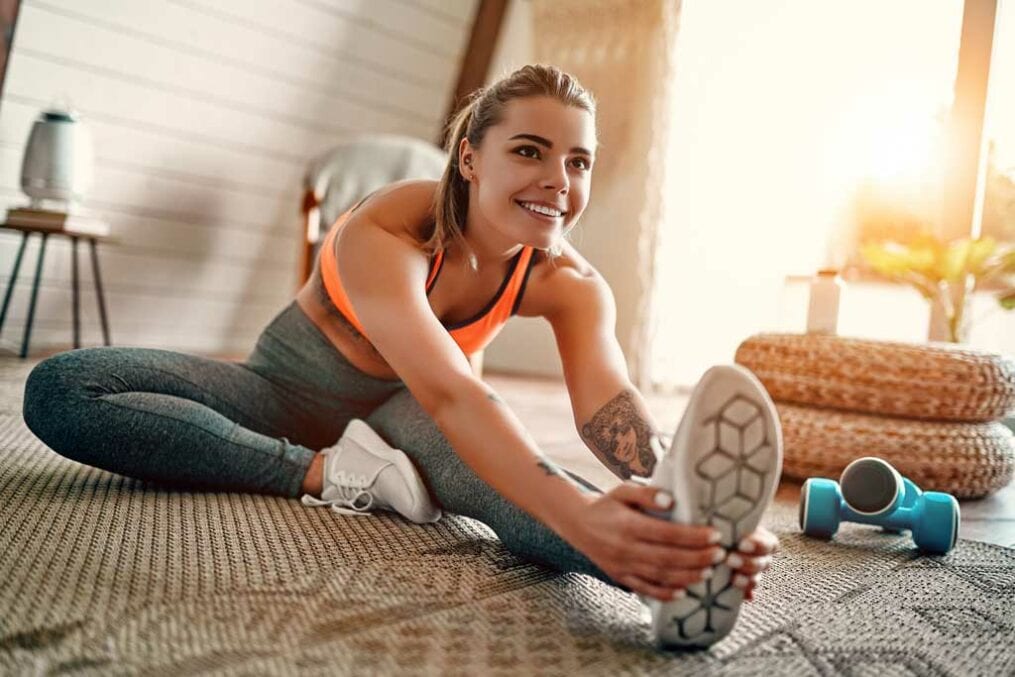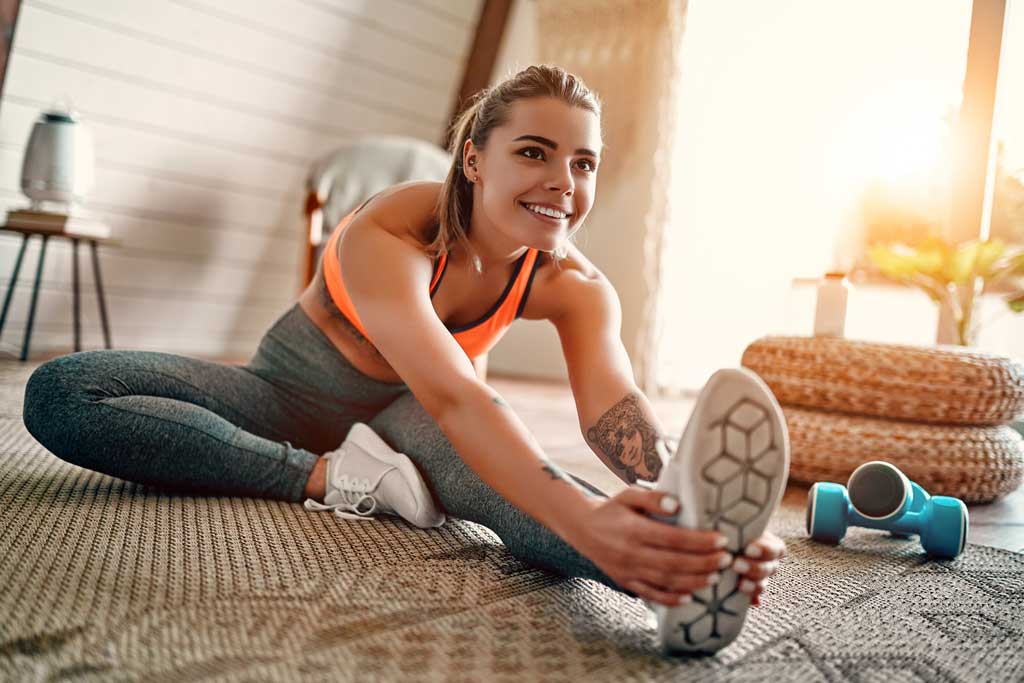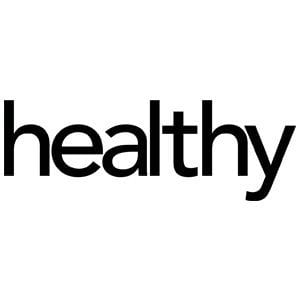7 ways to cut your cancer risk

1 Move more
A study published in JAMA Internal Medicine revealed that being active was associated with a significantly reduced risk of many different types of cancer. Plus, regular exercise helps you maintain a healthy weight, which will also reduce your cancer risk. Aim for 150 minutes a week of moderate-intensity activity (something which gets you slightly out of breath), through things like brisk walking, cycling or swimming. Then, ideally, include more vigorous exercise, such as strength training or exercise classes. Try to avoid a sedentary lifestyle the rest of the time by taking desk breaks and using the stairs.
2 Eat well
Bowel cancer is the second biggest cancer killer in the UK, and the fourth most common cancer overall. The best way to reduce your bowel cancer risk is by eating a well-balanced diet with plenty of fruit and veg. This is because the skin on fruit and veg – fibre – provides the roughage needed in order to keep your bowel working effectively. A high intake of red or processed meat is also liked to increased cancer risk, so if you’re a meat-eater, choose the best quality you can and stick to small amounts.
3 Watch your weight
According to Cancer Research UK, around 22,800 cases of cancer could be prevented every year if we all maintained a healthy weight. And yet, an estimated 63% of the UK’s adult population is currently overweight or obese. Your BMI can give a rough indication of whether or not you need to lose weight or not and you can find out yours by using the NHS BMI healthy weight calculator. Generally, a BMI of 18.5-25 is considered healthy, while a BMI of over 25 falls into the overweight category. A BMI of 30 or more is classified as obese.
4 Limit the booze
Alcohol is implicated in around 3% of cancer cases in the UK, so it’s best to limit your intake. Chief Medical Officers advise that we should drink no more than 14 units of alcohol (or six medium glasses of wine) over the course of a week in order to reduce our risk of cancer and other potential health issues. To give this some context, a woman drinking between 14 and 35 units of alcohol per week has a 15% chance of developing breast cancer – this would drop to 11% if she didn’t drink at all.
5 Quit smoking
Lung cancer is the third most common type of cancer in the UK, (and the second most common cancer in women) yet, 79% of cases are preventable. There are two main types of lung cancer: small cell and non-small cell, and evidence links both with smoking. Over time, the cells in the lungs are ‘insulted’ by the carcinogens in cigarette smoke. While they may remain non- or pre-cancerous for a long time, repeated ‘insults’ can trigger changes that cause a pre-cancerous cell to turn cancerous. Even one cigarette can cause harm, so stub it out – now!
6 Protect your skin
The ultraviolet light in sunlight damages the DNA in skin cells, which is what causes the most serious type of skin cancer, malignant melanoma. These harmful UV rays are also emitted by sun beds, so steer clear! In the UK, 16,202 cases of melanoma are diagnosed every year, and, unlike other cancers, its numbers are disproportionately high among younger people. To protect your skin in summer, cover up and stay in the shade between 10am and 4pm, when the sun’s rays are most intense. Choose a broad-spectrum sunscreen that protects against both UVA and UVB rays (minimum SPF 30) and reapply it every two hours – or every hour if you’re swimming.
7 Check it out
Examine your breasts at least once a month, feeling the breast tissue, under each armpit, up towards your collarbone and down towards your trunk. If you spot any changes in size or shape, any difference to your skin or nipples, feel a new lump or experience unusual pain, contact your GP. Women aged 50-70 are automatically invited for breast cancer screening every three years, but you should still contact your GP if you notice anything unusual between appointments.
Attend your smear tests – they help to prevent around 75% of cervical cancer cases from occurring – and if you ever notice unusual bleeding, unpleasant, smelly discharge or unexplained pain in your lower back or between your hips, call your GP. Blood in your bowel movements, changes in your skin, or moles, blood in your urine or persistently bleeding gums can also be symptoms of various cancers, so report them as soon as possible.







